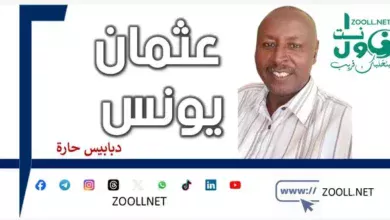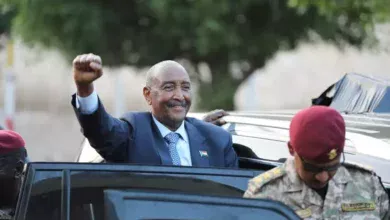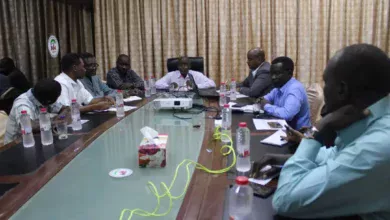Geneva Talks..the Final Fall – Scattered Fragments – ✍️ Zulnurain Nasr al-Din al-Lawyer

Are the Geneva negotiations hidden in the final fall agenda? The armed forces were invited to talks in Geneva by the US administration with the Rapid Support Forces on August 14. This invitation symbolizes equality and equality as parties to the conflict between the army and the Rapid Support Forces, and implies a lack of recognition of the armed forces. the authority or the government in place. The statement issued specified the participating parties, but rather the agenda of the negotiations in a precedent. This is strange and through a statement issued in the media, and it is similar to Blinken's invitation, which bore the wording. of the command of the Awal Al-Burhan team to go to Jeddah.
People still lack official information from the government to clarify the facts. On the contrary, they have continued to communicate through search engines to verify the correct information. What is surprising is why the current authorities are deliberately ignoring that people have the correct information. People are not exposed to rumors and illogical analysis. People are the real and concerned stakeholders in all final solutions, they have the upper hand in all talks or negotiations that lead to fateful decisions.
The presence of popular representation protects against any hidden agenda or decision not in line with national interests or expected pressures, rather it embodies the truth of the slogan (one people, one army if the armed forces agree to leave). In Geneva, the people must have enough information and involve the representatives of the people by opening windows of communication to unify opinion in these crucial talks so that they can assume their national responsibility because the negotiation concerns all members of the people and then the army.
If the decision to sit down to negotiate is within the competence of the authority after assessing the higher interests, then popular participation and agenda cannot exceed the popular pulse, and negotiations will find a fertile environment for implementation and care if popular representation is present because there is no hidden agenda except popular interest, and lack of representation will undoubtedly lead to objectionable results and non-implementation. The negotiators of the rapid support will choose the representatives of their supporting parties from among a few.
If the army conducts the negotiations alone, its position in these negotiations will be weakened.
The seriousness of the negotiations is represented by a main agenda such as a ceasefire, the delivery of humanitarian aid and a solid mechanism to ensure the implementation of the agreement, and the latter has many hidden agendas that will depend on reports from non-neutral sources. parties to which attention must be paid.
The United States of America has invited a number of observers, such as the African Union, Egypt, the United Arab Emirates, the United Nations and Sudan, and some of them have already indicated that the danger also lies in the fact that discussing the political agenda requires the presence of people other than political elites with a narrow agenda.
Before the final approval, the government must clarify the mediation on many unclear issues, such as recognizing the humanity of the current government, agreeing on the methodology of the talks, the agenda and initial reservations in the negotiation, setting a framework and limits for the observers, the need to recognize the right of the armed forces to defend the sovereignty of the country and clearly clarifying the countries that support the militias.
If the Sudanese government does not show its strength through the participating delegation, condemning the behavior of the militias and recognizing the current government, it will be the final downfall of the country.





